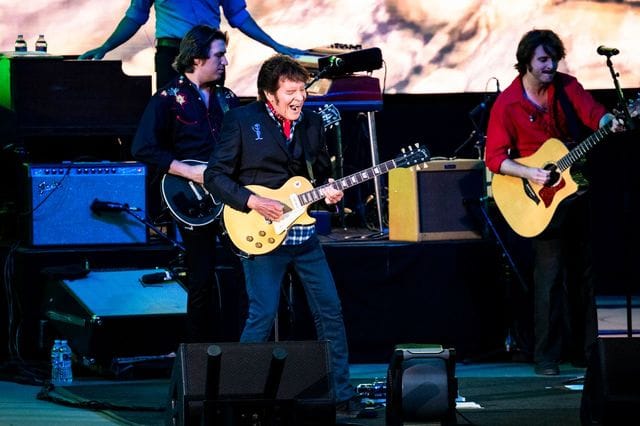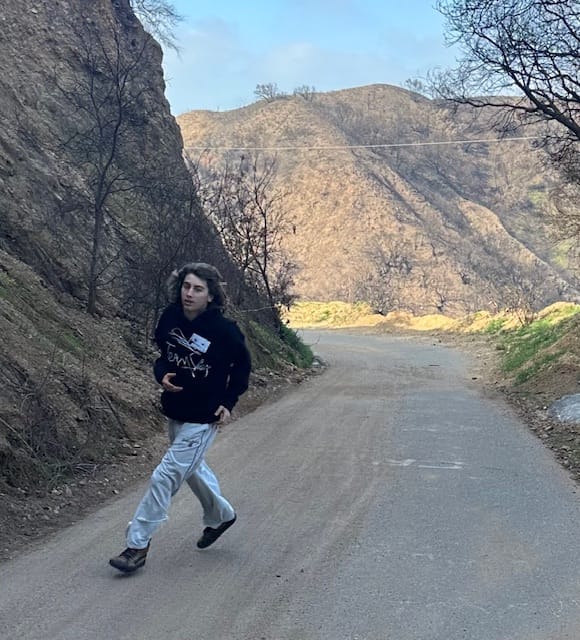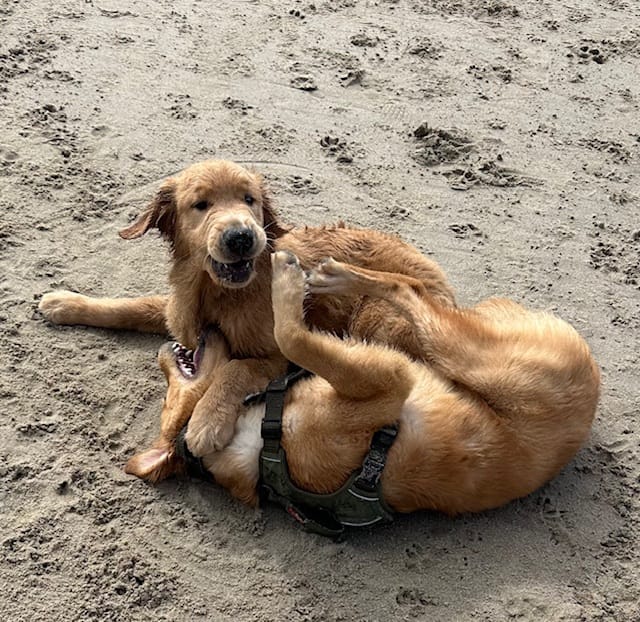Put A Candle in the Window

John Fogerty at Hollywood Bowl Is All About Family
Put a candle in the window/`Cause I feel I've got to move/But I won't, won't be losing my way, no no/Long as I can see the light...
That John Fogerty is an American original, even if that two-word descriptor is a bit shopworn, there is no denying .
He could equally be depicted as popular music’s most beloved thieving magpie, a compounder of rootsy fare. When he opened his set at the Hollywood Bowl on July 6 with the barnstorming “Bad Moon Rising,” many in the avid crowd of 17,000-plus may have heard deeper meaning in the familiar lyric: “I hear rivers overflowing/I hear the voice of rage and ruin.”
The last known victims of the tragic and massive flooding centered around the Guadalupe River’s destructive overflows a hundred miles due west of Austin, Texas, had been swept away by the deluge that followed a downpour of Biblical scale. And oh yes, post-DOGE, not only were the warnings compromised, the very event, a top climatologist averred, is yet another symptom of “extra heat--trapping gases in the air that come from burning fossil fuels, are warming the atmosphere and oceans.”
Such prevailing trends will continue for some 3.5 years, we can be sure. There’s no more General Milley to advise a panic-puling S. Miller in a meeting at the time of the George Floyd protests, “Shut the fuck up, Steve.” [See Woodward and Costa, “Peril”]
The floods had already begun their fatal surge even as Trump was pounding a gavel on Friday, July 4 to celebrate, like a sugar-gacked toddler, his big bad continued dismantling of all that marked our democracy in the years since Fogerty launched his first protest songs. Those plaints in song might be said to include the precipitation hits—1978’s “Who’ll Stop the Rain,” (with its slagging of “Five year plans and new deals/Wrapped in golden chains…”) and 1971’s “Have You Ever seen the Rain?”—both of which the Bowl crowd would hear, as they would hear a third, and most indelibly so, “Fortunate Son”.
The latter title, used for his 2015 memoir, would be appropriated by gravely wounded Vietnam veteran Lewis Puller, Jr. (much respect to him, to go with his Silver Star and 1992 Pulitzer for his book bearing the title). Born four months apart in 1945, Puller and Fogerty both reached their forties in the grip of alcoholism. (Puller, never recovering from the trauma of severe wounding, shot himself in 1994.)
About that time, Fogerty, enmeshed deeply in a comeback attempt with the 1997 solo revival effort “Blue Moon Swamp," had finally raked back some of the proceeds (and in a Supreme Court decision, the legal costs) from his painfully prolonged fight over copyrights and royalties with original Fantasy Records label head Saul Zaentz. He had won his long battle to see rockabilly guitar icon Duane Eddy win entry to the Rock`n Roll Hall of Fame, but he was still drinking in spates as he torturously recorded “Blue Moon Swamp,” album that included a paean to his wife, since 1971, Julie. A sung tribute to her, “Joy of My Life,” would be heard in the reflective middle third of his Bowl set.
The same obsessive candor that enriches his memoir—the book bears several chapters told with convincing determination and touches of humor by Julie herself—became the theme of the evening. The seasoned Merle Haggard fan who has chided less meticulous Merle cover attempts put his Haggard-like heart into delivering her song, and if it had a lulling effect on the patrons there for the bangers, it reinforced the bonhomie of the scene. The legendary venue, with its dulcet hillside breezes and historic aura, was clearly a place where even squares can have a ball.
Helpful friends from the Bowl management had granted entry in response to my `angle’—call it a premise—that on a night when the artist had two sons featured in his band, I might bring my June college graduate before the coming robot epoch fully clamps down on his generation. It would be a chance to partake not only of some prototype Americana (a term Fogerty’s entire body of work unselfconsciously fulfills), but to be amidst the merry crowd enjoying their wine and a welcome dusk gathering exemplifying what Jack Nicholson misses in “Easy Rider”: “You know, this used to be a pretty good country.”
It was around this transitional stage of the show where said son turned to me and said, “Is he kind of in between…a redneck and a hippie?” Which description might fit Merle, Waylon, Willie, Johnny Cash and certain other prized musical forebears, but one must leavine room, in the Fogerty canon, for Stephen Foster, Booker T and the MG’s, Carl Perkins, Robert Johnson, Lead Belly, Hank Ballard, Bo Diddley (great JF cover: “Before You Accuse Me”) and more too numerous to name but who can easily be found in his book, assiduously cited for their influence and inspiration in Fogerty’s restless perfectionism.
The “Blue Moon Swamp” stations of the cross would end when Fogerty, having secured his rightful publishing money, returned to playing the entire thwomping blast that is his catalog. Thus, the more typical set opener (as for Glastonbury’s couple hundred thousand punters), “Up Around the Bend,” inspired by a motorcycle ride and cranked out of a Rickenbacker with Les Paul humbucking pickups (such is the lore Fogerty shares with audiences at times) roared right into “Green River.”
How many tallboys (yeah, we had some—we rednecks too!) have been quaffed to the anthem “Green River”? The track derived its name from a particular obscure brand of soda; If that origin jars, you may want to duck and cover before being apprised that the first word of the band’s moniker, as it was chosen is 1967, was ginned up from the name of a South African immigrant who served as custodian at a local apartment building where a friend lived: one Credence Nuball. They almost adopted his whole name before lending it a spare vowel (“creed” had a nice resonance) and adding the Clearwater (hippies!) middle part as inspired by an Olympia beer ad.
Conflicts in the band began almost at once. Though raised in the relatively bosky and peaceful town of El Cerrito that bordered Berkeley, California, the family underwent their dad’s departure when John was around eight. Older by four years, his brother Tom was part of a scuffling household scenario that drove John into full-on musicianship. Tom had been the band’s first lead singer for the then-`Golliwogs,’ and would only have one writing credit on the band’s output, “Walking On the Water.”
Insofar as John would not perform songs that for decades were shedding most royalties into Saul Zaentz’s legendarily greedy hands, the first time I heard that spookily sung, bass-forward song live was midway through punk princeling Richrd Hell’s 11- song set at CBGB’s in January 1977. I had reviewed his “Blank Generation” album for Rolling Stone with the assessment, “…singing Creedence Clearwater's 'Walking on the Water' over a caustic guitar line, Hell does sound like a visionary,” and watched from steps away as, with a tight smirk for the crowd, he had introduced the song with, “Let’s take a little dip.”
In that stretch leading to Creedence's slapping 1969 of hitmaking with three quick albums, the band played “Walking…” on stages from Oakland to Istanbul, and finally one last time at Fillmore East. Then Fogerty had shut down any tunes from his catalog. “The saddest story in rock,” sneered Stu Cook, the bass player Fogerty would regard as a quisling; but that was then and this is now, and with seven summer shows booked into September, there’s more glory to be won. Perhaps the well-curated stage-backdrop videos including “Run Through the Jungle” (with scenes of the working class striving hard, interlaced alongside Vietnam footage--although Fogerty once said the song was more about gun control. More perfidies by MAGA will surely lead to a few asides. At the Hollywood Bowl, a chatty Fogerty wondered if he might improve his craft with some study at …Columbia or Harvard. (Cue appreciative crowd laughter, with empathetic moans.)
As we’d driven drove over the hill to the Valley I DJ’d a set list through the car speakers—some must-haves like “Fortunate Son” and Proud Mary” (indeed Fogerty closed the set with the former and his encore with the latter) and then the deep tracks I vainly hoped to hear: “Endless Sleep,” “I Put A spell On You,” and the old school adagio, “Long As I Can See the Light”. Arriving as the 16th of the evening’s 24 songs (all packed into just under two hours), it was sweetly and winningly sung.
"Long As I Can See the Light," Hollywood Bowl:
https://www.youtube.com/watch?v=qLZJPETA2NE
It was a show to not just to like (“Very enjoyable,” said my companion early on, with sincerity), but per the tour rubric, to celebrate.
“I guess they’re heading towards “Fortunate Son,” was my son’s rather astute surmise, and indeed, that touchstone cut arrived after the youthful Fogerty sons Shane and Tyler joined dad in a blistering three-guitar attack on “Old Man Down the Road.” By the time darkness fully settled in, so had a kind of hopefulness. Thus, it was no longer the tale of an itinerant and nearly discarded musician that the singer’s performance of “Lodi” recalled. Rather than lean into the lyric’s memory of “Every bar we had to play while people sat there drunk,” what this performance brought was some phones-alit outbreaks of Chardonnay-adjacent, swaying-in-place. And when Fogerty, in these waning moments of the set, brought forth “Have You Ever Seen the Rain,” he promised a rainbow (well, at least “sun shinin’ down like water,”) and informed the satiated gathering, “the rainbow reminds me of you.”
And just who was going to argue with that?



Comments ()